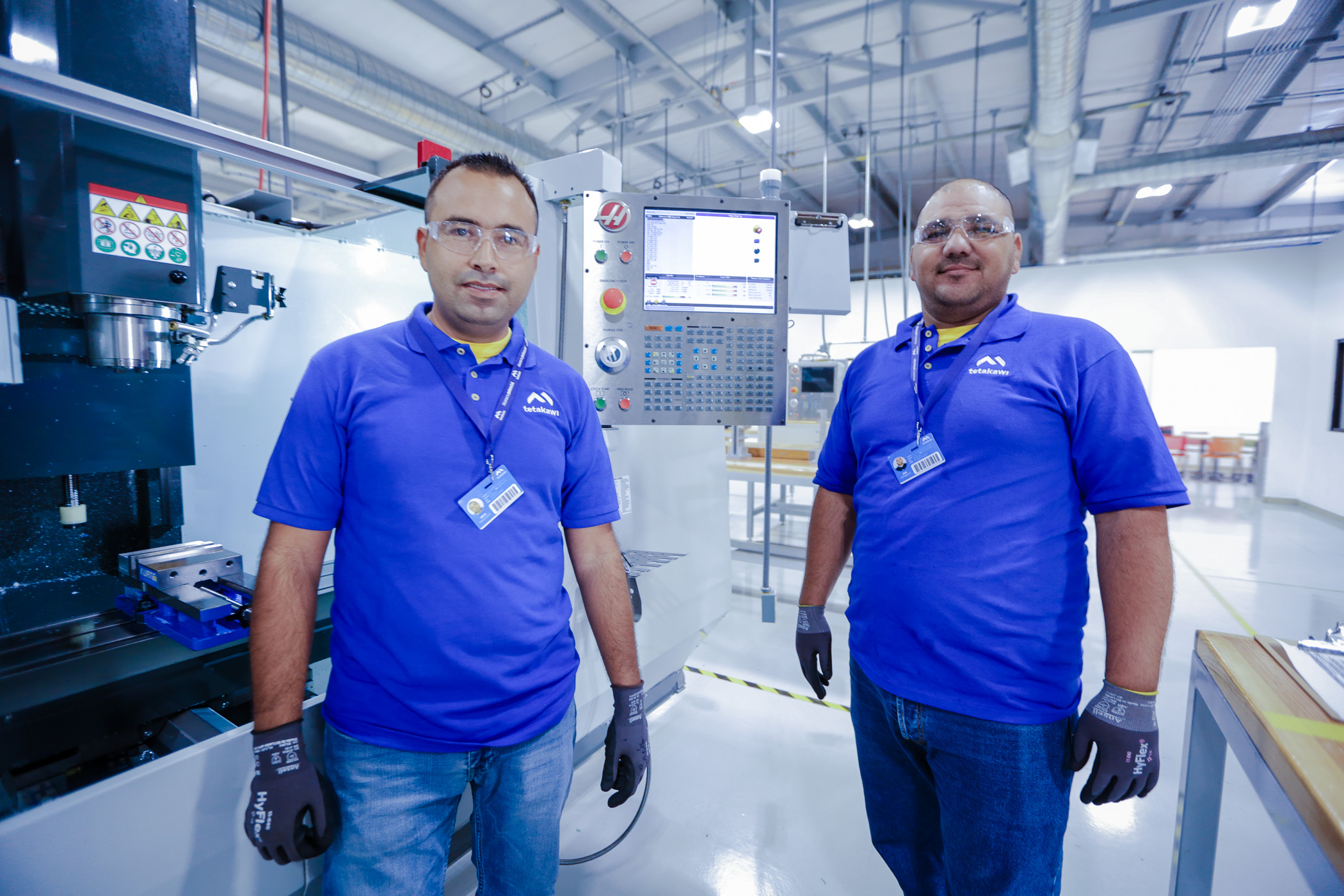Every so often, a scholar offers a compendium of perspectives that, while not necessarily his or her own, provides a glimpse into a topic of management in the Mexican manufacturing workplace.
Such is the case with Dr. Pramila Rao, who earned a bachelor's of arts from Women’s Christian College; master's degree from Grand Valley State University; and doctorate from George Washington University. Rao’s primary research interests revolve around understanding human resource management in a manufacturing environment in Mexico and India
Her teaching areas include: Recruitment and Selection, Total Pay, Human Resource Management and Global Human Resource Management. Rao's work encompasses a range of management topics and she cites some 150 sources, all footnoted in her work. Many are obscure works, some decades old, that would likely never find their way into an American manufacturing manager's hands in Mexico. For purposes of this brief article and in the interest of saving space, footnotes are eliminated and the word "researcher" is substituted.
Sources range from smaller papers to doctorate theses. Included are such eclectic works as “How to do Business in Sixty Countries. Kiss, Bow or Shake Hands;" “Ownership Patterns of US Joint Ventures Abroad and the Liberalization of Foreign Government Regulations in the 1980s;" and “Thinking of a Manufacturing Plant in Mexico.”
Glimpses of Rao´s work are available through a basic Google search. She may be contacted at pramila.rao@marymount.edu, (703) 284-5726.
Excerpts:
Feeling of loyalty to company: Though Mexicans feel a strong sense of loyalty towards their superiors, corporate loyalty is not as strong a part of the Mexican culture. Subsequently employee turnover can be high in some Mexican companies in which upper level leadership is weak. To overcome this lack of loyalty that Mexican employees sometimes may display towards an organization, researchers have suggested that multinationals frequently conduct company-oriented training sessions. Such sessions would help develop and inculcate a sense of commitment, community, understanding and loyalty to the company. (Researchers) note that Unilever, the AngloDutch multinational firm instills a strong sense of loyalty in its world-wide employees through constant use of such orientation programs. These sessions should provide frequent information of the company’s mission, goals, and strategies. This would also provide employees opportunities for socialization, which is received well by the Mexican employees in a manufacturing and other environments.
Benefits, coupons: Researchers emphasize that Mexican manufacturing workers in some regions freely enjoy privileges like food coupons, child-care, weekly food baskets, health care and educational programs. Maquiladoras in the border areas often have cafeterias that offer free food, and holiday bonuses in their compensation package In fact, the border areas of Mexico have been called “Perk Paradise” by some. On the other hand, manufacturing executives and managers in Mexico value special employee perquisites such as having a private secretary, an impressive title, a company car, club membership, and other special privileges that add to their perceived power and prestige . Special employee perquisites are usually provided to managerial employees. The attraction to these things may be due to the fact that in reality many Mexican middle managers have narrowly defined decision-making roles. Hence Mexicans middle managers, like their counterparts in many other countries, often appreciate being able to show authority. Clearly Americans also desire employee perquisites and the advantages they offer. However the need for such perquisites is more for the benefits rather than the status that Mexicans associate with these symbols.
On the Ford Motor Co. plant in Hermosillo: Though US and Mexican firms consider training as a costly investment, many US-Mexican joint ventures have invested and found such training programs to have had substantial benefits. Specifically, Ford’s high quality joint venture Hermosillo plant in Mexico identifies their training and development programs as one of the primary reasons for increased commitment, satisfaction and reduced employee turnover among its employees.
Accepting more US rules in workplace: As the presence of US and other foreign manufacturers has increased in Mexico over the last several decades, there has been a commensurate increased tendency among Mexicans to accept US practices. Employees working for such ventures have adapted easily to teamwork, quality circles, less hierarchy in management, pay-for performance compensation criteria and a careful selection process.
Power-Distance Power-Distance: is the extent to which cultures accept power in institutions and organizations. Subsequently, the superior’s role in such a culture is clearly defined and well-differentiated. Employees and employers maintain a clear professional distance, and employees hesitate to provide input to their supervisors and managers. The boss’ role has traditionally been to direct and give orders. The literature is replete with evidence that Mexican employees may dislike such participative behavior with their superiors. Such participatory behavior would disturb the employees’ perception of the traditional role of a manager. Consequently, employees would consider such situations threatening or anxiety producing.
Uncertainty-Avoidance: Researchers identified Mexicans high on the cultural dimension of Uncertainty-Avoidance. Uncertainty-Avoidance indicates the extent to which a culture feels threatened by uncertain or ambiguous situations. Generally, Mexicans do not like situations which are unambiguous or uncertain. Such cultural assumptions have consequences in the staffing area of the human resource management function. Mexicans have a strong need to hire and recruit people they know. Management practices in Mexico tend to favor hiring known individuals, family members or friends who seem more trustworthy than unfamiliar applicants. Literature also suggests that Mexico manufacturing plant HR personnel constantly use word-of mouth techniques for hiring lower level employees; however, the emphasis here is that such a cultural attribute widely exists in Mexico at all levels
Pay-based performance: Pay-based performance, where pay is contingent on an employee’s performance, singles individuals out for recognition in a Mexican manufacturing, and other workplace environments. Such systems will be stressful for the Mexican due to the fear of being ostracized by their social group. Also, their high scores on the Uncertainty-Avoidance dimension, suggest that Mexicans prefer guaranteed pay to pay-based on performance
The American managerial style: The American managerial style has been characterized as democratic and egalitarian. It is common for subordinates and superiors to discuss projects together, and even for subordinates to disagree with their superiors. In a study on US-Mexican manufacturing environment communication interactions, it was discovered that top directors of the organization, (all of whom were Mexican employees) were actively involved in a participative process with their lower-skilled employees, taking their input and advice on job-related issues. Hence, the first proposition is: “Superiors and subordinates sit around the same table and offer ideas. This is a relatively new proposition for the Mexican employees and they like it. For years and years, these Mexican employees spoke only when asked. Now that they are being asked to contribute to discussions. This non-traditional employee management dynamic has tremendously helped their morale in the Mexican manufacturing workplace in terms of dedication and satisfaction."
Pay for performance and management-by-objectives: Manufacturing employees in the US are motivated by pay-for-performance and the management-by-objectives method of evaluation, which is consistent with the American ideology of achievement and individualism. However, with exposure to US business practices, Mexican manufacturing workers are responding more positively to both pay-for-performance and objective method of evaluation than in the past.
Loyalty versus technical skills: (Researchers) state that in traditional Mexican companies, superiors prefer subordinates to have characteristics such as loyalty, devotion and cooperation over technical qualifications. Such qualities of subordinates are well rewarded in the evaluation and promotion process. Similarly, the subordinates rely completely on their superiors for advancement in their career.
Subscribe
Sign up and stay informed with tips, updates, and best practices for manufacturing in Mexico.





